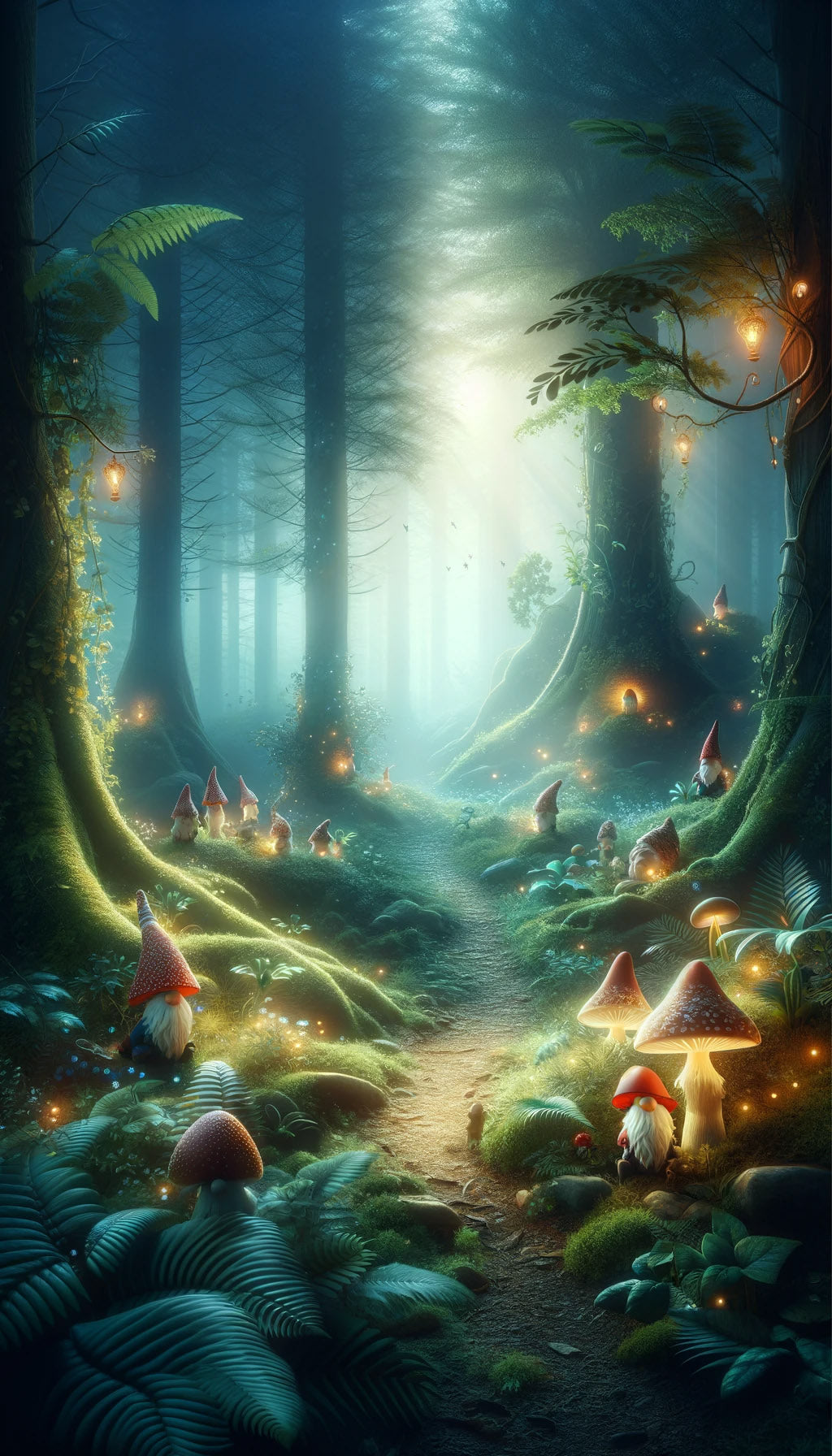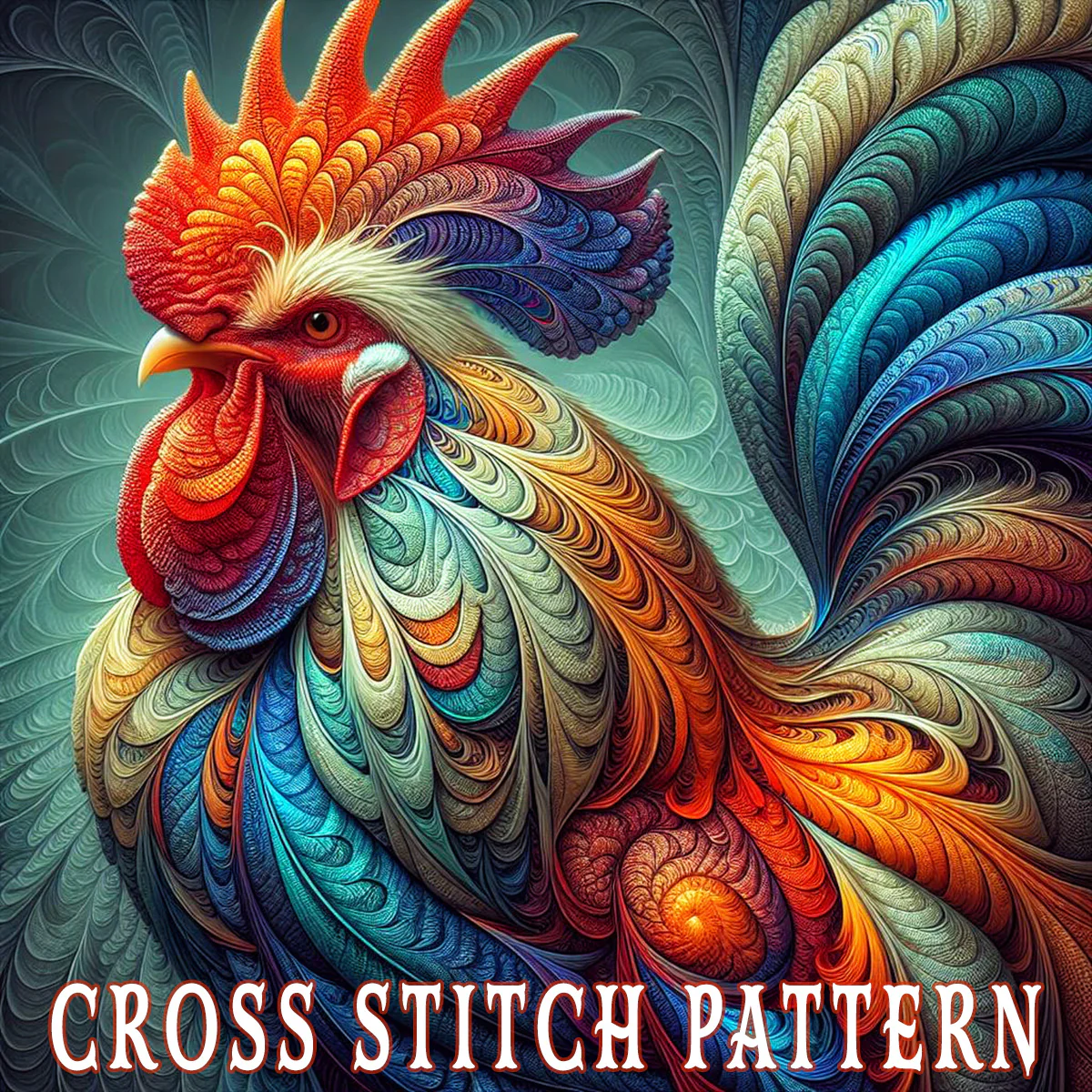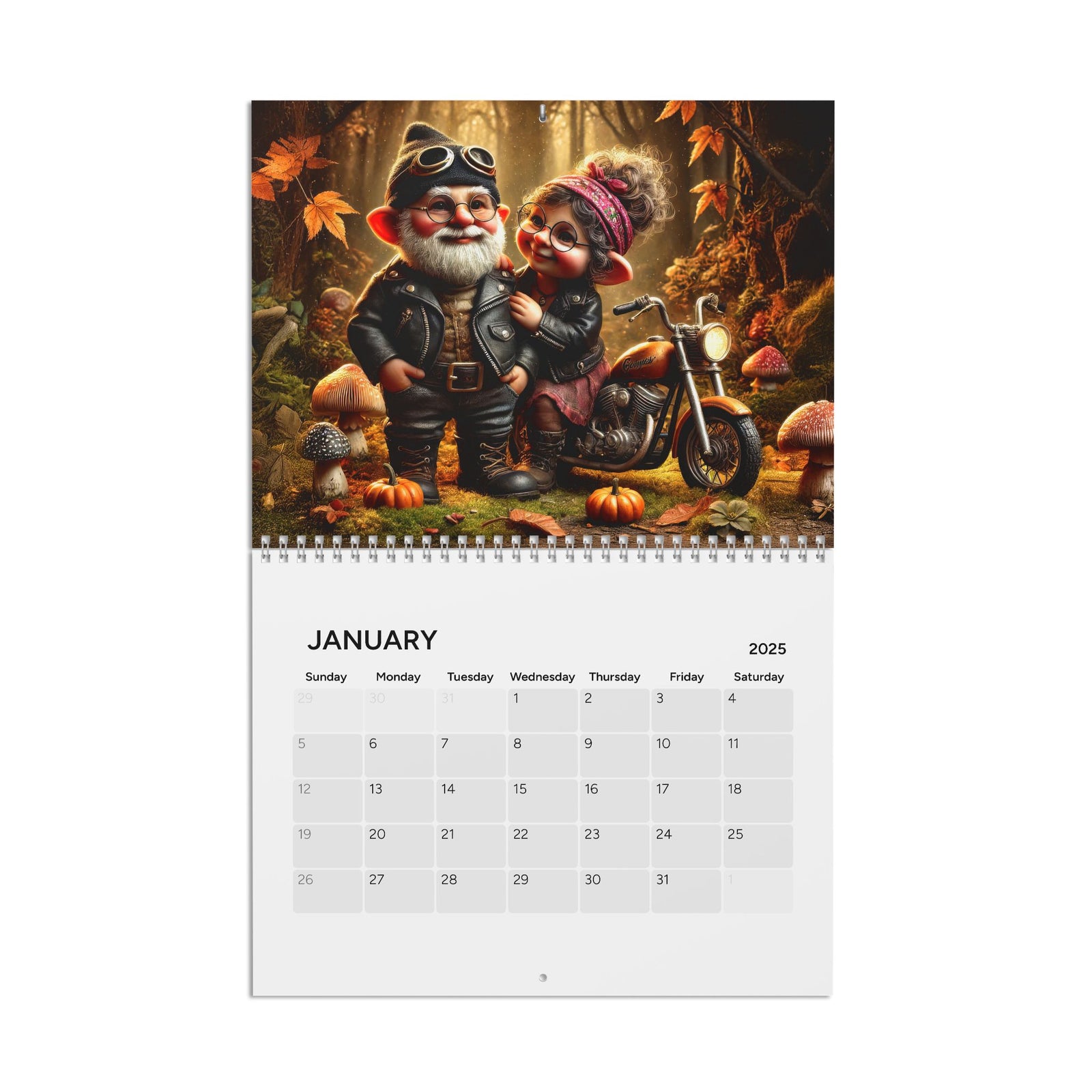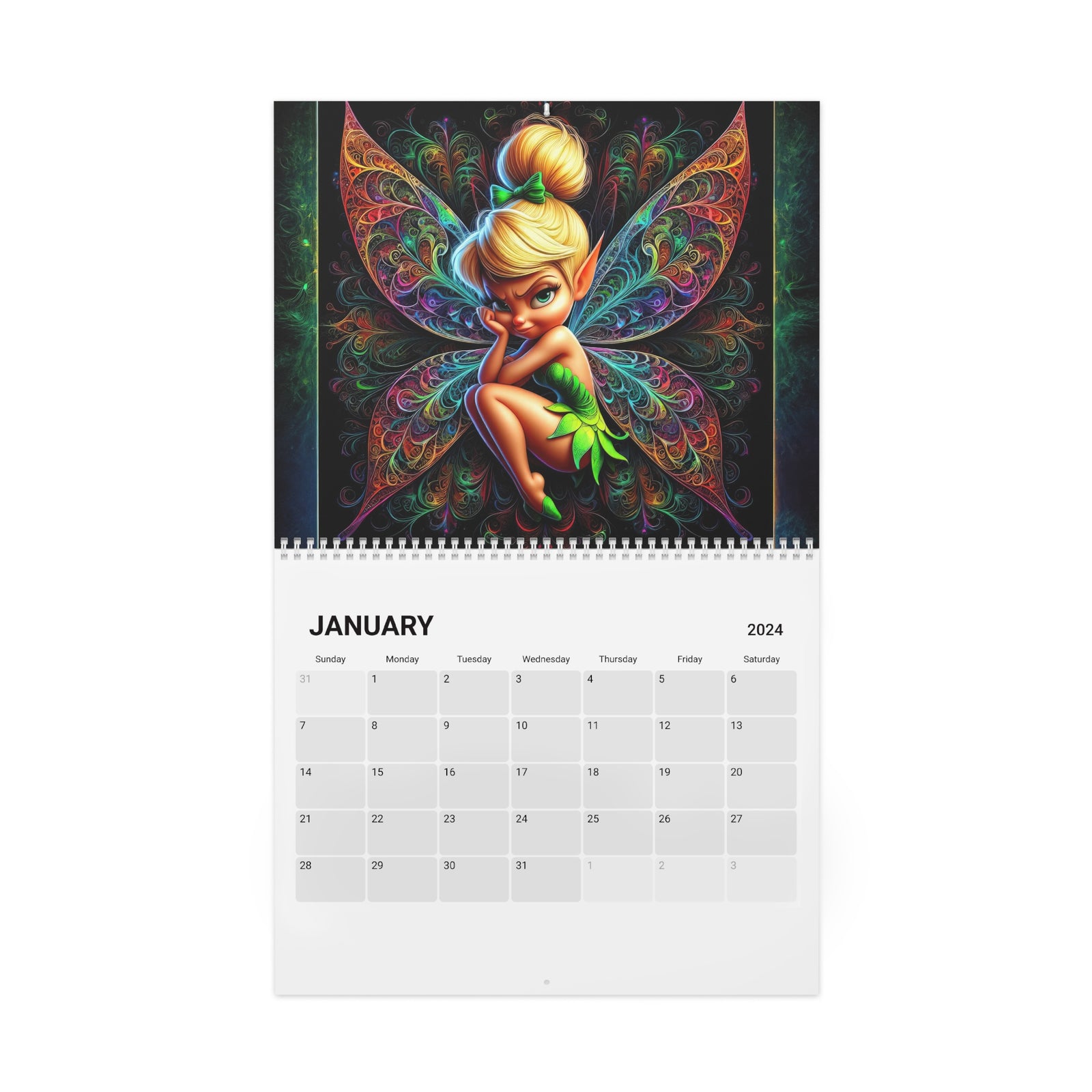
Whiskers at the Witching Window
The Familiar's Complaint “If one more squirrel insults me from the holly bush, I swear to Bast I’ll torch the tree.” The orange tabby was muttering again. His name—though few dared use it aloud—was Bartholomew R.J. Whiskerstein, Esquire. He was the third Familiar to serve at No. 13 Embercurl Lane, a mystical townhouse wedged between dimensions, where the mail arrived only when Mercury was in retrograde and the curtains had a mind of their own. Bartholomew’s ears twitched as he sat perched on the ledge of the violet-paned window. Beneath him bloomed a plush carpet of enchanted lavender that hissed faintly if plucked without permission. Behind him, thick velvet curtains danced without breeze—tracing glowing sigils in the air like lazy lightning bugs scribbling curses in cursive. Inside the townhouse, chaos hummed in that pleasant, distant way only mild sorcery can. There was the sound of a teapot making demands. A stack of grimoire pages trying to unionize. And, somewhere in the study, the soft weeping of a sentient lamp contemplating its existence. Bartholomew ignored all of this. Because Bartholomew had a job. A highly specific job. A job that came with perks (a bottomless dish of roasted chicken hearts) and perils (being regularly used as a scrying lens by a witch who still hadn’t mastered “consent”). He was the Official Perimeter Watcher, Guardian of Thresholds, and—unofficially—the only housemate with the balls to tell Madam Zephira that her black lace corsets were clashing with her aura again. Tonight, however, the swirls in the stucco glowed brighter than usual. Their fractal curls pulsed like molten gold veins across the obsidian walls, marking the hour as not quite midnight and definitely up to something. And Bartholomew, with his one crooked whisker and eyes the color of guilty marmalade, knew the signs. Someone was coming. And not the kind who wore boots or knocked politely or brought salmon. Someone uninvited. With a tail twitch of annoyance and a small sneeze into the lavender blooms (they smelled amazing but were absolute bastards to his sinuses), Bartholomew straightened his spine, narrowed his gaze, and did what any respectable magical creature would do in his position. He farted dramatically, just to establish dominance. The wall beside him hissed in response. “Oh please,” he purred into the growing glow. “If you’re here to devour souls, at least bring a snack.” Zephira, Doomscrolling, and the Visitor from the Slant Madam Zephira Marrowvale was elbow-deep in her spellbook, though not for anything productive. She was doomscrolling. To be fair, the grimoire had recently updated its interface, and now it mimicked the layout of a social media feed—an unfortunate side effect of Zephira’s habit of whispering her thoughts to her mirror while the Wi-Fi was unstable. As such, instead of recipes for lunar elixirs or hexes for passive-aggressive neighbors, the leather-bound tome now served up endless gossip from disembodied witches across the astral plane. “Ugh,” Zephira groaned. “Another thirst trap from Hagatha Moonbroom. That’s the third this week. No one needs to see that much thigh from a lich.” Bartholomew, having returned from his window post only to find his warning hisses entirely ignored, slunk into the main room, tail held at a judgmental tilt. “You do realize,” he said with that slow, deliberate tone cats use when they know you’re not paying attention, “that there’s a potential rift forming in the wall?” Zephira didn’t look up. “Is it the laundry wall or the library wall?” “The front wall.” “Oh.” She blinked. “That’s... more important, isn’t it?” “Only if you enjoy the concept of interior dimensions staying on the inside,” Bartholomew replied, now licking one paw in a manner that suggested this was all terribly beneath him. With a sigh and a dramatic flourish, Zephira stood up, her long coat rustling like parchment paper dipped in attitude. The air around her shimmered with leftover magic: sparkles, ash, and the faint smell of peppermint schnapps. She stomped toward the window where Bartholomew had resumed his watch, this time sitting like a disappointed statue made entirely of orange velvet. Outside, the night was beginning to change. Not just darken—but change. The swirling glow around the window had thickened, threads of molten amber knotting and curving like someone had spilled calligraphy ink into firelight and pressed it to the walls of reality. Then—something knocked. Or maybe it burped. Or maybe the universe coughed up a hairball. Either way, the sound was wrong. “That’s not good,” Zephira whispered, suddenly sober. “That’s... from the Slant.” Bartholomew’s ears flattened. The Slant was a bad neighborhood between planes. It was where lost socks went. Where contracts rewrote themselves. Where things that weren’t supposed to feel shame hung out just to enjoy the sensation. No one invited guests from the Slant. Mostly because if you could invite them, it meant you were already partly one of them. The knock-burp-hiccup came again. “Do you think it’s after you or me?” Zephira asked, half-hoping it would be Bartholomew. He was, after all, technically immortal and less emotionally fragile. “Neither,” he said, fur bristling. “It’s here for the window.” “Why the hell would anyone come for a window?” “Because,” Bartholomew said, leaping down into a stretch that made every vertebrae in his body crackle like a haunted fireplace, “this particular window is a passage. A junction between realms. A former portal to the Celestial DMV. You really should keep better notes.” Zephira’s mouth fell open. “I thought this window had weird feng shui.” Before either of them could speak again, the glass began to bend inward—not break, not shatter—bend, like it was made of smoke or jelly or poorly explained plot devices. The lavender beneath the sill rustled and puffed in protest, releasing sparkles and spores that smelled strongly of sassafras and minor regret. From the swirling gold, a face emerged. Not a full face. Just... parts. An eye here, a suggestion of a grin there. And—strangest of all—a monocle made of static electricity. It was a face both beautiful and terrible, like a Greek god who also did your taxes and wasn’t happy about your deductions. “HOUSE OCCUPANTS,” the entity intoned, its voice vibrating the curtains into curls. Bartholomew leapt back onto the sill and squared his shoulders. “What in the unholy name of wet kibble do you want?” The face pulsed, amused. “I AM THE INSPECTOR OF INTERPLANE THRESHOLDS. THIS UNIT—” “This house, darling,” Zephira corrected, arms crossed. “—THIS UNIT IS IN VIOLATION OF CODE 776-B: UNSANCTIONED ENCHANTMENT OF ARCHITECTURAL OPENINGS.” Zephira raised an eyebrow. “So you’re telling me I have a... magical zoning issue?” Bartholomew hissed. “He’s here to repo the window.” The entity blinked. “YES.” For a moment, no one spoke. Then Zephira reached down, plucked Bartholomew off the sill, and cradled him like a particularly judgmental baguette. “Listen here, Spectral Bureaucrat,” she said, raising her chin, “this window is original to the house. Hand-framed by a sentient carpenter who charged us in riddles. It’s mine. Mine!” The inspector swirled ominously, then paused. “HAVE YOU FILED FORM 13-WHISKER?” Zephira blinked. “...There’s a form?” Bartholomew groaned. “Of course there’s a form.” The face began to phase back into the wall. “I SHALL RETURN AT MOONRISE TO SEIZE THE STRUCTURAL COMPONENT UNLESS PROPER PAPERWORK IS PRODUCED. PREFERABLY WITH A NOTARY’S SIGIL AND A RUNE OF COMPLIANCE.” Then—poof. Gone. Only a light sprinkle of bureaucracy sparkles remained in the air, which smelled like cinnamon and mild passive aggression. Zephira looked down at Bartholomew. “Well... now what?” “Now?” he said, wriggling out of her arms. “Now we commit minor fraud and probably summon your cousin from the Ministry of Misfiled Souls.” “Ugh. Thistle? She still owes me twenty moons and a jar of pickled griffin toes.” “Then I suggest you bring snacks,” Bartholomew said, already walking away. “And don’t wear the lace. It makes your aura look bloated.” Loopholes, Lavender, and Larceny The clock struck something. Probably not midnight, because this particular clock refused to engage with time in a linear fashion. It preferred vibes. Tonight, it struck “tense-but-optimistic,” which was either promising or deeply concerning. Bartholomew was back at the window, tail twitching like a metronome set to sarcasm. The lavender beneath him had sprouted extra blossoms during the argument with the inspector, clearly energized by the conflict. They whispered quietly to themselves about how juicy everything was getting. Inside the house, Zephira was hunched over a cluttered desk, surrounded by scrolls, spell-stamped forms, and at least two empty wine bottles (one real, one conjured). She’d summoned her cousin Thistle for help, which was like hiring a tax attorney who specialized in interpretive dance. “You don’t file the 13-Whisker form,” Thistle was explaining, twirling a quill that occasionally bit her fingers. “You embed it into a sub-layer of your home’s aura, with a notarized dream. Honestly, Zeph, everyone knows that.” “Everyone?” Zephira asked, face planted in a stack of parchment. “You mean everyone who majored in Arcane Bureaucracy and enjoys licking stamps made of beetle shells?” Thistle shrugged, looking very pleased with herself in a cardigan made of disappointment and sequins. “I got mine done during a blackout after a cursed fondue party. You’ve had years.” Bartholomew, overhearing this, let out a sound that was somewhere between a meow and a groan. “You two do realize the Inspector’s coming back tonight, right? I’m not in the mood to explain to the dimensional authorities why a ginger tabby is living inside a legally extradimensional portal with noncompliant trim.” Zephira stood up, eyes glowing faintly with a mix of hope and sleep deprivation. “We have one chance. If we can disguise the window’s threshold signature—just until the next lunar quarter—we can delay the repossession. Thistle, get the dreamcatcher chalk. Bart, start projecting non-threatening thoughtforms. I need plausible deniability on the astral field.” “Excuse you,” Bartholomew sniffed. “I’ve been projecting non-threatening thoughtforms since I was neutered.” The house groaned in agreement, shifting its weight as spells realigned themselves. The curtains flattened. The furniture arranged itself into Feng Shui legal compliance. The dishes washed themselves in a frenzy of sudsy paranoia. Just as the finishing rune was inscribed around the window frame—using chalk blessed by three caffeine-addled dreamwalkers and one heavily sedated owl—the wall glowed again. He was back. The Inspector oozed into existence like molasses with a law degree. “OCCUPANTS,” it bellowed, less intense this time. “I RETURN FOR—” “Hold it,” Zephira interrupted, stepping forward like a woman who had absolutely not just spilled gin on an ancient document of exemption. “Please review Form 13-WHISKER, Subsection D, filed under the Implied Entanglement Clause, certified via mnemonic binding and signed by my Familiar’s third eyelash.” She held up a glittering sigil embossed into a strip of lavender parchment that reeked of legitimacy. Mostly because it was actually a forged wedding license from a dryad and a toaster, re-enchanted by Thistle with mild deception runes and a scent of “forest confidence.” The Inspector pulsed. Blinked. Spun slowly. “THIS... DOES APPEAR TO BE... ACCEPTABLE.” “Then kindly sod off into your dimension’s nearest cubicle farm,” Bartholomew purred, eyes half-lidded. “Before we file a Form 99-B for harassment under Rule of Familiar Dignity.” The Inspector paused. “THOSE STILL EXIST?” “They do if you’ve got a cousin in the Ministry,” Thistle said sweetly, batting her eyes and sipping something from a mug that steamed in Morse code. The glow faded. The swirling tendrils dimmed. The monocle flickered, sighed, and finally vanished like a disappointed dad at a community theatre recital. The Inspector was gone. Zephira slumped against the wall, lavender chalk crumbling in her fist. “We did it.” “We barely did it,” Bartholomew corrected, stretching luxuriously. “You owe me an entire week of scrying-free naps and the good sardines.” “Done,” Zephira said, kissing his furry forehead. “And no corsets for at least a lunar cycle.” “Blessed be,” Thistle whispered, throwing a little confetti made of shredded legal scrolls into the air. Outside, the window returned to its quiet glow. The lavender purred. The swirls of gold settled into elegant curves again—less frantic now, more decorative. Like they were proud of themselves. Like they, too, were in on the joke. Bartholomew returned to his perch, curling up with a satisfied grunt. He blinked once at the stars. “Let ‘em try,” he muttered. “This house is defended by sarcasm and sleep deprivation. We’ll never be conquered.” And as the first rays of false dawn peeked through the enchanted sky, the cat on the sill slept—dreaming, no doubt, of squirrels who finally shut their damn mouths. Take a Little Magic Home If you felt the curl of mystery or heard the whisper of lavender while reading Whiskers at the Witching Window, you’re not alone. Now you can bring a piece of Bartholomew’s world into your own with a selection of enchanted keepsakes featuring this very scene. Cozy up with the fleece blanket for a nap worthy of a Familiar, or rest your dreams beneath the swirling gold with our duvet cover. Need a bit of sass on the go? The tote bag has your back—whether you're transporting spell ingredients or snacks. And for those seeking a bold statement of aesthetic rebellion, the framed art print is a portal unto itself, ready to hang in any room that dares to flirt with the arcane. Each item is available exclusively at shop.unfocussed.com, where fantasy meets home decor in purring, glowing, ginger-furred defiance.




















































